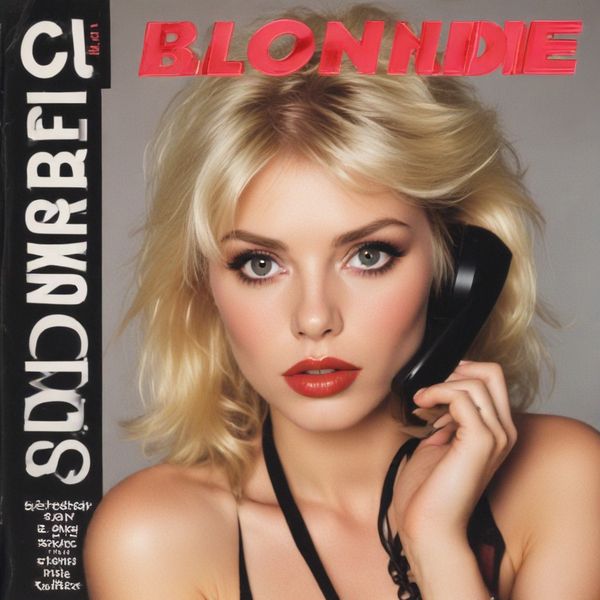“𝘾𝙖𝙡𝙡 𝙈𝙚” – 𝘽𝙡𝙤𝙣𝙙𝙞𝙚

“Call Me” by Blondie: A Iconic Anthem of the 1980s
Released in 1980, “Call Me” by Blondie stands as a quintessential anthem of the 1980s, embodying the era’s vibrant energy and style. Written by Debbie Harry and Chris Stein of Blondie, and produced by Giorgio Moroder, the song was a major commercial success and remains one of the band’s most enduring hits. Its catchy melody, distinctive production, and memorable lyrics have solidified its place in music history as a landmark of both the new wave genre and the decade’s pop culture.
Musically, “Call Me” is characterized by its infectious and upbeat melody, which perfectly captures the spirit of the early 1980s. The song opens with a driving, pulsating beat and a prominent synth riff, which set the stage for a high-energy track that combines elements of rock, pop, and disco. Giorgio Moroder’s production is both polished and dynamic, incorporating synthesizers, rhythmic guitar riffs, and a steady drumbeat to create a sound that is both modern and timeless. The song’s arrangement effectively balances a sense of urgency with an undeniable groove, making it a standout track on the dance floor and the airwaves.
Debbie Harry’s vocal performance on “Call Me” is one of the song’s most compelling aspects. Her voice is both powerful and seductive, delivering the lyrics with a sense of confidence and allure. Harry’s ability to convey a range of emotions, from longing to empowerment, adds depth to the song and enhances its overall impact. The chorus, with its memorable line “Call me, call me / Anytime,” showcases Harry’s vocal prowess and captures the song’s central theme of passionate desire and connection. Her dynamic delivery and charismatic presence are key elements in the song’s success and enduring appeal.
Lyrically, “Call Me” explores themes of love, desire, and the need for communication. The song’s lyrics convey a sense of urgency and longing, as the narrator expresses a desire for a phone call from a lover. Lines such as “I’m just a call away” and “I need you now” reflect the narrator’s yearning for connection and the excitement of a romantic encounter. The lyrics are straightforward yet effective, capturing the essence of a relationship that thrives on constant communication and emotional closeness. The repetition of the phrase “Call me” reinforces the theme of longing and desire, making it a central motif in the song.

The music video for “Call Me,” directed by Julien Temple, further enhances the song’s themes and energy. The video features dynamic visuals that reflect the vibrant style of the 1980s, with scenes of Debbie Harry performing the song interspersed with footage of the band and abstract imagery. The video’s energetic and visually striking style complements the song’s upbeat and infectious nature, making it a fitting representation of the track’s appeal. The video’s playful and stylish approach also contributes to the song’s lasting impact and popularity.
“Call Me” achieved significant commercial success, reaching No. 1 on the Billboard Hot 100 and topping charts in multiple countries. Its success was driven by the song’s catchy melody, memorable lyrics, and the powerful performance by Debbie Harry. The track became one of Blondie’s most iconic hits, further establishing the band’s reputation as pioneers of the new wave movement and influential figures in the pop music landscape of the 1980s.
The song’s cultural impact extends beyond its initial release, as it continues to be celebrated as a defining track of the 1980s. Its catchy melody and upbeat vibe have made it a favorite at parties, events, and nostalgic gatherings, reinforcing its status as a classic anthem of the era. The song’s enduring popularity is a testament to its ability to capture the essence of its time while remaining relevant and enjoyable for new generations of listeners.











